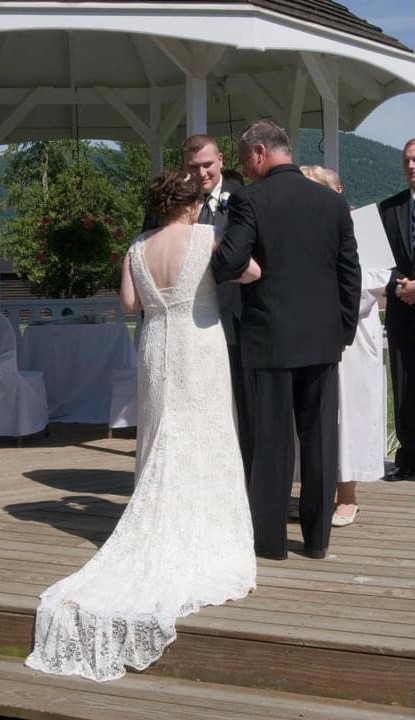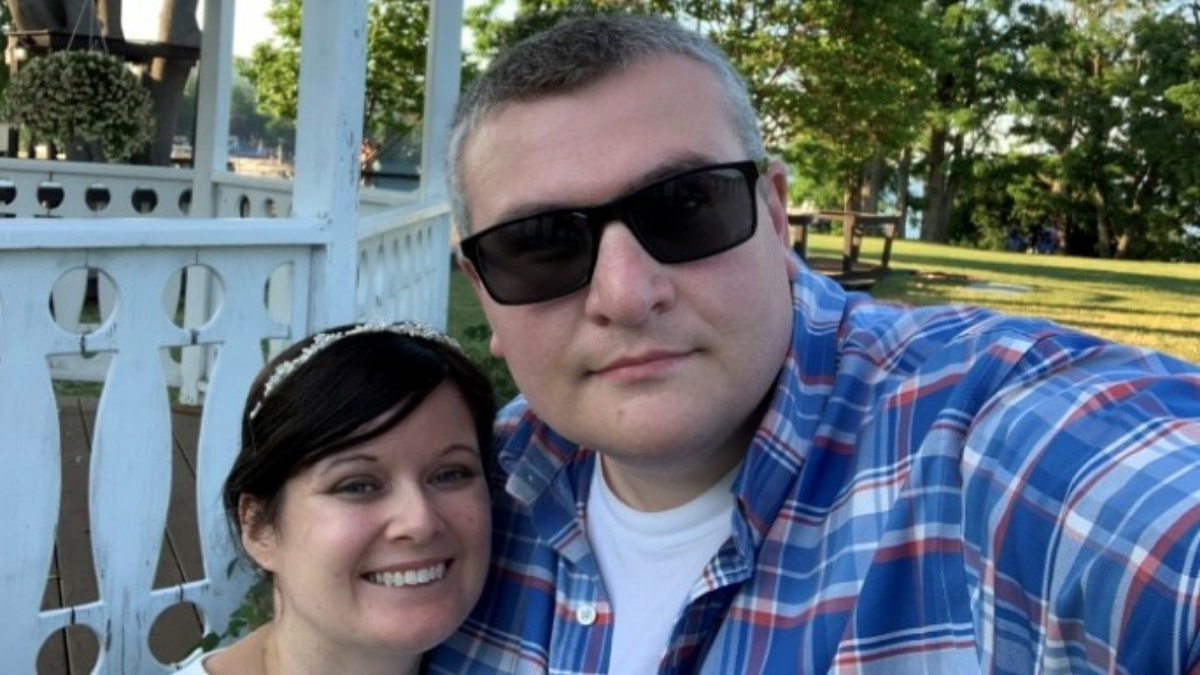How do you move forward when confronted with a medical emergency that nearly results in your death, followed by a life-altering diagnosis? How do you find hope amidst hopelessness?
Trying to get to the bottom of her fight with what was thought to be a “sinus infection,” Bridgette finally was diagnosed with a carotid-cavernous sinus fistula (CCSF), a rare medical emergency involving the vascular system behind the eye. With no explanation or traumatic event that could have caused this CCSF, doctors scheduled a routine catheter arteriography for Bridgette to fix it. Because she was in her early 20’s and healthy, they felt it posed no difficulties.
Bridgette almost didn’t survive the procedure. Her aorta and several other arteries dissected or ruptured, and describing her state as “touch and go,” doctors put Bridgette in a medically induced coma while they tried to save her life through a 12 surgeries. Finally, a vascular surgeon realized there was something wrong with her tissue. When Bridgette woke up, the doctors told her she had VEDS, or Vascular Ehlers-Danlos Syndrome.
By the time they finally stabilized her, doctors were afraid to repair her femoral arteries, which had ruptured or dissected. With little blood flow to her legs, she’s had to patiently work through her body’s growth of new collateral blood vessels and underwent painful rehabilitation to walk normally again.
I explored Bridgette’s story for the first episode of my podcast in 2018. We connected again last month to talk about how she stays positive and how she moves forward. This is what she shared with me:
“When I got your email my first thought was, ‘I don’t live positively…at least not every day.’ It’s hard to believe that I live positively when I think of the lows of living with VEDS and everything that comes with it – death, uncertainty, pain, fatigue, and having to fight for disability. Even though they are interested, it’s difficult constantly explaining VEDS to others.
“But when I think of the bigger picture, and how far I’ve come…we’ve come, it does nothing but make me feel hopeful.
“After nearly losing my life, living positively was actually easier. I didn’t understand the disease back then. I knew that it was rare, and it explained the mysterious medical problems I’ve had in life. I was so lucky to have survived, everyone said so, and that was what I needed to hold on to.
Since then, I’ve learned just how difficult VEDS is. I’ve made it a goal to achieve everything that I set out to do before VEDS could take it away from me.
I recently read Erin Carr’s remembrance of her father, All That You Leave Behind. She recounts her father’s advice, “just do what’s in front of you and do it well.”
If I can think of this every day, I don’t worry too much about what I cannot do or won’t ever do again. It keeps me getting up every morning, instead of asking, “why me?”
My first goal was getting married and keeping my original wedding date, only about two months after leaving the hospital, which no one thought was a good idea. After that decision, my only goal was to make it the 20 steps down the aisle on my dad’s arm.

Later on, my goals became to finish my master’s degree – something I started prior to my emergency, live in a house, get a dog. Each time I completed one goal, I’d move to the next, trying to stay on the path I was traveling before my diagnosis: obtain a professional teaching license, get back into the classroom, coach softball again, train said dog (still a work in progress).
Sometimes the goals were much simpler: go on a trip with friends, drive a car, walk to the mailbox and back three times this week. I tried focusing on things I could change and be a part of – even in my local community. Enjoying life, not sweating the small stuff, is something that is always on the list, something that I always need to remember, especially with the ever-changing nature of living with VEDS. All these goals help me move forward, rather than stagnate.
This isn’t always easy on the days my legs hurt so badly I can’t get out of bed, or when I see others succeeding in the career I once had. Sometimes, it’s hard looking in the mirror at my sparse hair, worrying I’m having another bowel obstruction because I ate a big dinner, or feeling horrible about everything I don’t have rather than everything I do.
I need to remind myself there’s so much good in life that’s still there and I don’t want to miss out on that. Each memory I’ve had since has made the struggle worth it.
I also have to remember I’m not alone. Those who lost their lives to VEDS matter and must be remembered. By living positively (most of the time), my accomplishments are theirs because we are forever connected by this disease.
By sharing my story, I hope that the close calls I and others have experienced don’t happen to anyone else. I’m hopeful that doctors, surgeons, and those affected who may not know it can connect the dots sooner than I was able. I hope they can keep the things VEDS took from me – never being able to run again, losing a full time career, not having kids. That hope motivates me to keep fighting.
What pushes me through now is that the VEDS community – the handful of people who know what it’s like to live with this disease – has become extended family. Finding a little bit of myself in their stories, talking with them, meeting them, and knowing that they understand what so few people do, they give me hope.


